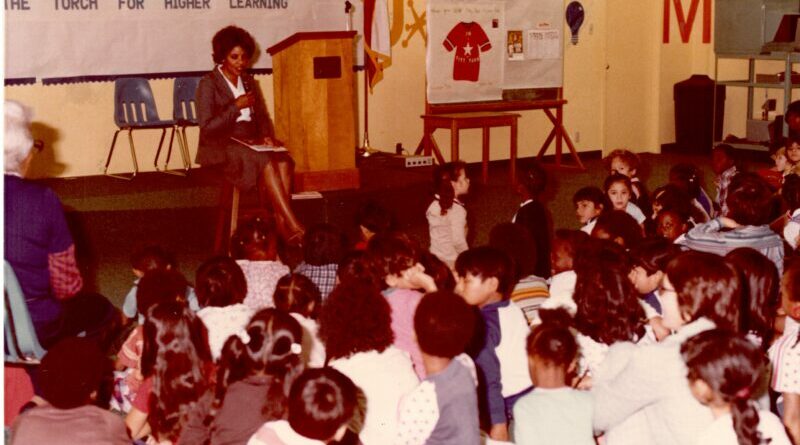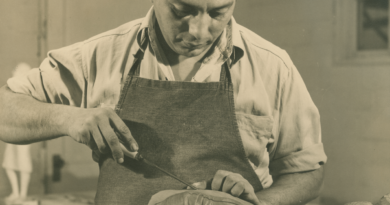African American Museum Celebrates Black History Month
The African American Museum in Dallas will celebrate Black History Month with an array of exhibitions and in-person and virtual educational activities.
Three compelling exhibitions explore everything from the role that the Prairie View Interscholastic League played in Black high school sports in Texas during segregation, to a nostalgic look back at a national magazine with Fort Worth roots celebrating African American achievement. Also, an exhibition by a Dallas Black photographer captures the fight for 14-1 representation at City Hall, the protests against police brutality, and progressive Black politics in Dallas in the 1980s and 1990s.
Other museum activities planned for Black History Month include numerous educational and historical presentations and discussions. All events are free and open to the public, except for the annual Carter G. Woodson Luncheon that kicks off Black History Month at the African American Museum on Feb. 5.
Events include:
- Opening Program for Black History Month by Dr. W. Marvin Dulaney, President of the Association for the Study of African American Life and History (live-streamed, free) Tuesday, Feb. 1, at 4:30 p.m. CST. Subscribe to ASALH TV at https://www.youtube.com/c/ASALHTV.
- Seventh Annual Carter G. Woodson Luncheon. Cosponsored with the W. Marvin Dulaney Branch of the Association for the Study of African American Life and History. Guest Speaker: Ms. Tisha Crear, owner of vegan restaurant Recipe Oak Cliff. Saturday, Feb. 5, at noon in the museum’s Solarium. $15 on site; $10 virtual. Reservations required:
214-948-2004. - Artist Exhibition and Community Roundtable (Thursday): “From Generational Trauma to Generational Healing.” Exhibition runs Feb. 7-12; Roundtable is Thursday, Feb. 10, 11 a.m.-1 p.m. in the Museum’s Rotunda FREE. Reservations required:
214-403-5726. - A Book Signing: How We Got Over: Growing Up in the Segregated South, by Helen Benjamin, Ph.D., and Jean Nash Johnson, co-sponsored by The Louisiana Society of the African American Museum, the Bishop College Alumni Association and Tulisoma Book Club
Saturday, Feb. 19, 2-4 p.m., Museum’s AT&T Auditorium
FREE - President’s Conversation with Dr. W. Marvin Dulaney, sponsored by the Association for the Study of African American Life and History, Saturday, Feb. 19, at noon (live-streamed). Subscribe to ASALH TV at https://www.youtube.com/c/ASALHTV
FREE
The three exhibitions running through Feb. 26 are as follows:
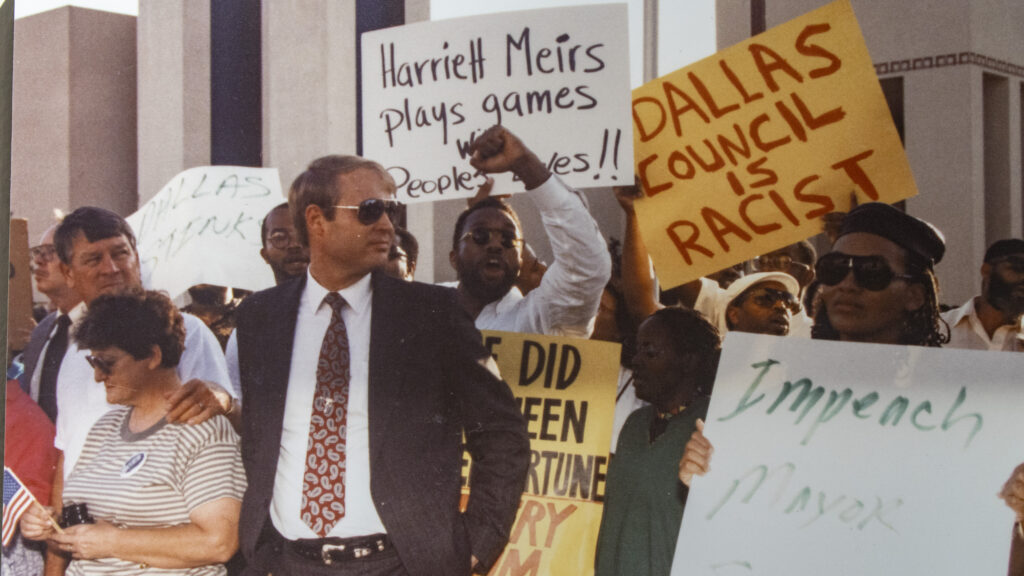
Politics, Protest and Black Progress in Dallas in the 1980s and 1990s: The Photographs of George R. Fuller
Now through Feb. 26
This exhibition showcases photographs by Dallas photographer George Fuller that capture the fight for 14-1 representation at City Hall, the protests against police brutality, and progressive black politics in Dallas in the 1980s.
Photographer George R. Fuller carries on the long tradition of documenting the lives, activities, and the actual history of African Americans through photography. As a photojournalist, he captured the struggles of African Americans in Dallas in the 1980s and 1990s to protest police brutality and discrimination, to win elective office by pursuing a more equitable city council system, and to achieve social and economic justice in a city that had denied equity in all areas of life to African Americans as an ongoing policy.
Through his work, Fuller has added to the photographic work of his predecessors in the field, such as R.C. Hickman and Mario Butts.
Born in 1954 in Brownfield, Texas, Fuller migrated to Dallas and attended Dallas ISD schools from fourth grade to his graduation from South Oak Cliff High School. He developed his lifelong interest in photography after meeting Bell, who was a school photographer and a photojournalist for the Dallas Post Tribune newspaper.
After attending Bishop College and traveling extensively, a mentor suggested he apply as a photographer at the Dallas Post Tribune, and with his camera, he began his illustrious career of documenting the African American experience in Dallas.
Sepia: Past. Pride. Power.
An exhibition of African American politicians, community leaders, and entertainers from the Sepia Magazine Collection of the African American Museum.
Now through Feb. 26
FREE
This exhibition features cover shots and photos from Sepia, a photojournalistic magazine styled like Look and occasionally described as the “poor man’s Ebony.” The magazine was founded in 1946 as Negro Achievements by Horace J. Blackwell, an African American clothing merchant of Fort Worth. Following the death of Blackwell in 1949, George Levitan, a Jewish-American man who was a plumbing merchant in Fort Worth, bought the magazines and Good Publishing Company (aka Sepia Publishing) in 1950. He changed the name to Sepia, and the magazine continued publishing beyond Levithan’s death until 1983. In 1991, the vast collection of Sepia photos was donated to the African American Museum, Dallas, and is now part of its permanent collection.
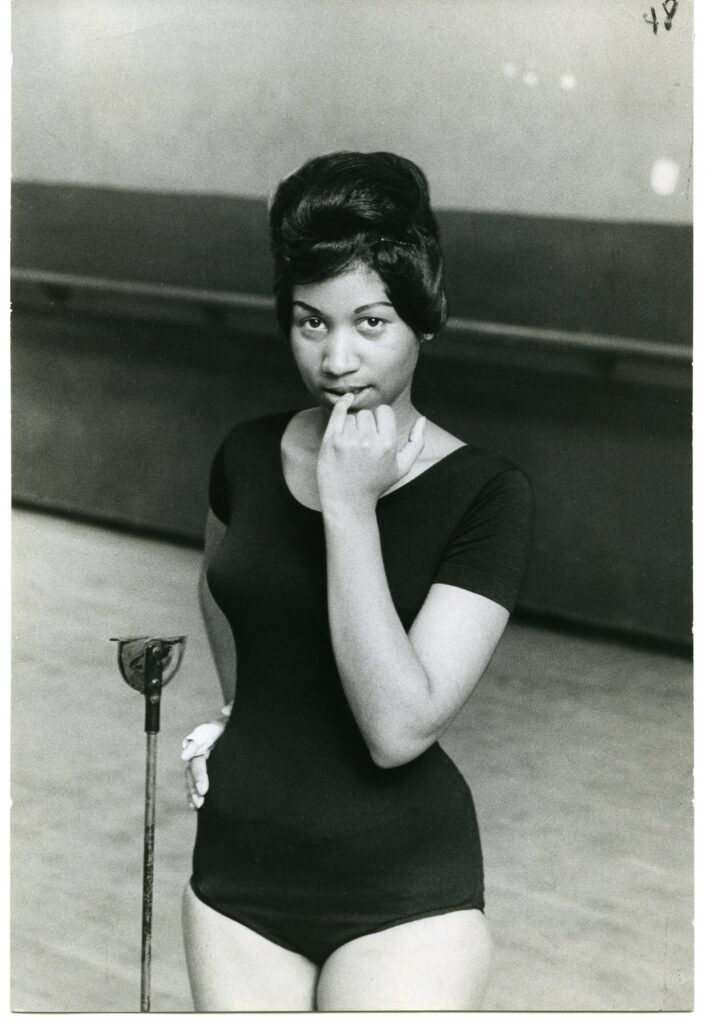
Aretha Franklin 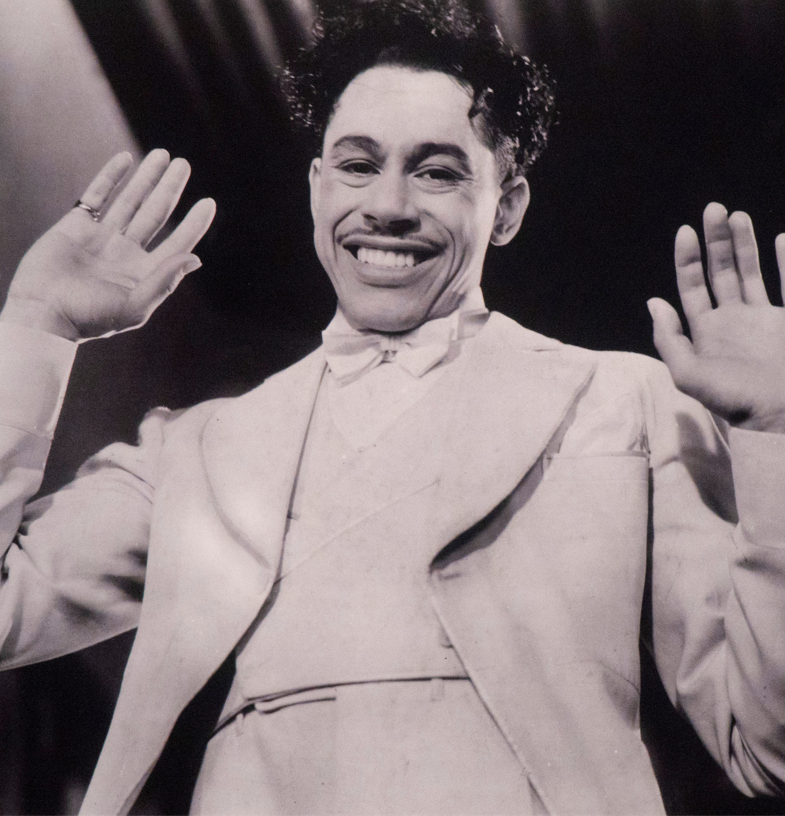
Cab Calloway 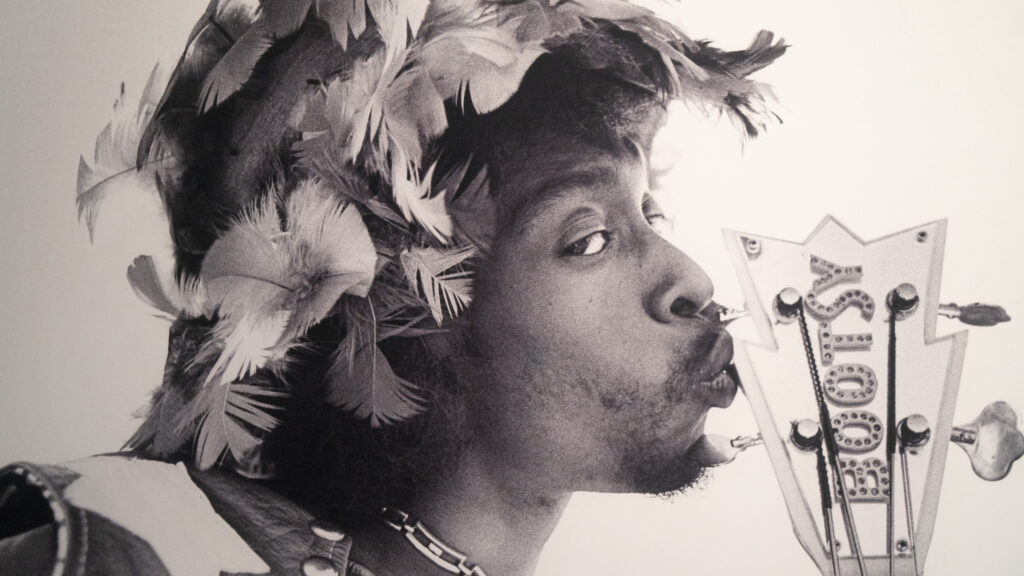
Jimi Hendrix
The Sepia exhibition includes some of the biggest names from the past century in entertainment, politics, and culture, including Aretha Franklin, Huey Newton, Ray Charles, Althea Gibson, Cicely Tyson, James Earl Jones, and many more.
The History of the Prairie View Interscholastic League: Black High School Sports in Texas in the Era of Segregation.
An exhibition of the players, teams, and the impact and dominance of Black high school sports in Texas when racial segregation forced African Americans to create their own interscholastic sports league.
Now through Feb. 26
This exhibition features memorabilia courtesy of the Prairie View Interscholastic League (PVIL) Coaches Association, which works to preserve and commemorate the history of the League and its governance over athletic, academic, and music competitions for the state’s black high schools during segregation. The PVIL was organized in 1920 by Prairie View officials and existed until 1970 when its merger with the University Interscholastic League was completed.

The exhibit includes vintage images, trophies, news clips, uniforms, and equipment. Despite being woefully underfunded and lacking other basic resources, PVIL schools featured passionate rivalries, legendary coaches, and dozens of college All-Americans – most through historically black colleges such as Prairie View and Texas Southern University.
The UIL opened in 1910 at the University of Texas to govern competitions for “any white public school” in the state. It would be another 10 years before African American students in Texas would have the same guidance afforded them by the Texas Interscholastic League of Colored Schools, which would mirror the UIL’s operations and produce some of the finest football talent in the nation.
Tickets are also now on sale for the 33rd Texas Invitational Black Rodeo that makes its return to Juneteenth weekend on Saturday, June 18, at the Fair Park Coliseum. Tickets go on sale Feb. 2, and are $10 and up.
The following events, originally planned for Black History Month, have been rescheduled for later dates:
- The Scott Joplin Chamber Orchestra concert, originally scheduled for Feb. 5 at The Black Academy of Arts and Letters, has been rescheduled for Saturday, April 30, at 5 p.m. Tickets are $15 and up. TBAAL is located at 1319 Canton Street, Dallas Texas.
- The book review and signing by Dr. Terry Anne Jones, author of Lynching and Leisure: Race and the Transformation of Mob Violence in Texas, originally scheduled for Feb. 19, has been moved to Saturday, March 19, at 3 p.m. in the Museum’s AT&T Auditorium.
Located in Dallas’ historic Fair Park, the African American Museum is located at 3536 Grand Ave., Dallas.
For more information, go to aamdallas.org or call 214-565-9026.

